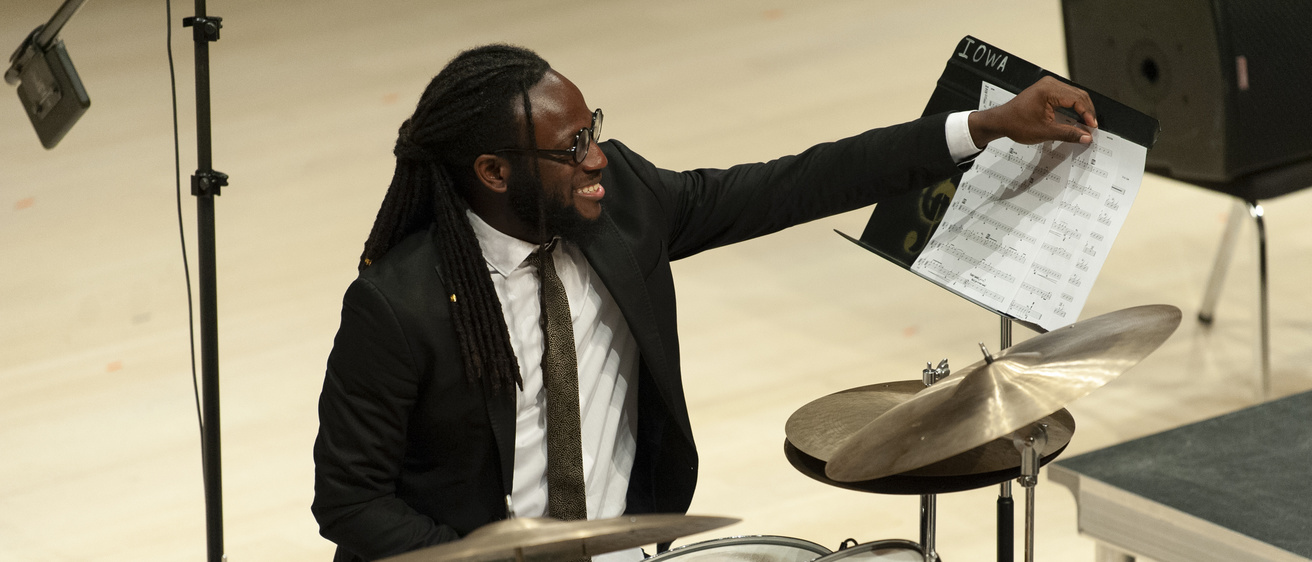Main navigation
We're your home for your advanced musical studies.
The School of Music is committed to educating the next generation of leaders in music and the related professions. In partnership with the UI Graduate College, we offer Master of Arts, Doctor of Philosophy, Doctor of Musical Arts degrees, and a theory pedagogy minor.
Areas and degrees
Students may work toward a Master of Arts, Doctor of Philosophy, or Doctor of Musical Arts. For degree and audition requirements for specific areas, please browse the following sections.
The school also offers a theory pedagogy minor. Visit the University of Iowa General Catalog for general information on graduate degrees in Music.
Master of Arts
Master of Arts (MA)
Doctor of Musical Arts (DMA)
Doctor of Philosophy (PhD)
A destination for creative collaboration
Our faculty are outstanding mentors at the forefront of their disciplines. As performers, composers, scholars, educators, and therapists, they are active professionals respected across the nation and around the world.
The University of Iowa UI was the first university in the U.S. to accept creative work in theatre, writing, music, and art as theses for advanced degrees. As a result, the artistic and cultural environment on campus and in the surrounding Iowa City community is both steeped in history and deeply supportive of innovation. Our audiences are enthusiastic and knowledgeable.
The Iowa City area is a delightful and comfortable place to make a home. In addition to the lively arts scene, our community features a diverse population, great restaurants and bars, community festivals, easy commutes, exceptional schools, Hawkeye sports, and a short drive to Chicago, Madison, and other Midwestern cities. And at its heart is the spectacular Voxman Music Building, home of the School of Music.
300
1 st
Graduate advisory exams
New graduate students, with the exception of M.A. Music Therapy and Ph.D. Music Education students, are required to take placement exams in Music History and Music Theory.
Graduate policies and procedures
The policies and procedures herein, together with the official current General Catalog of the University and the Manual of Rules and Regulations of the Graduate College, provide clear guidelines concerning all aspects of graduate study.
